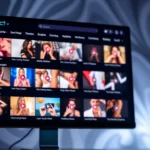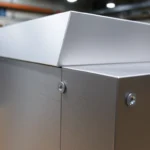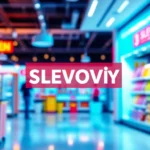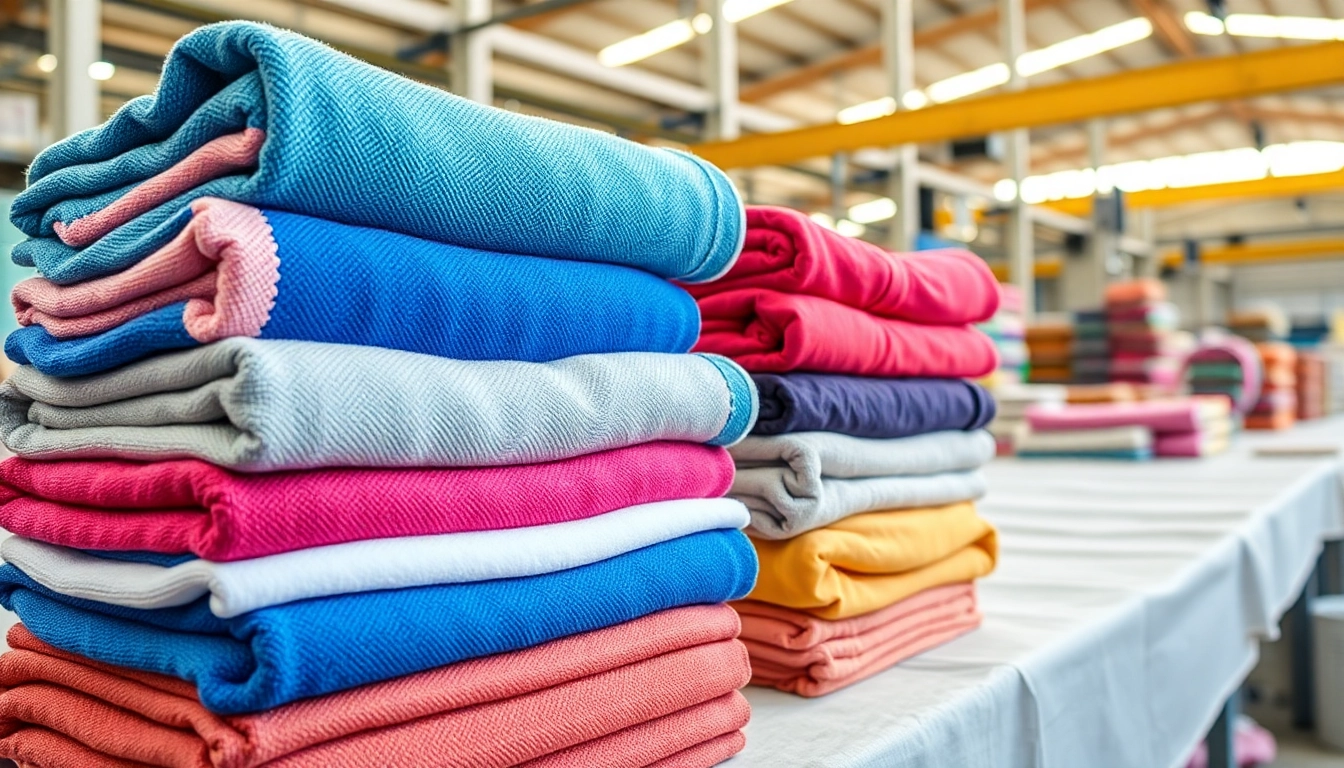Understanding Pakistan’s Towel Export Industry
Pakistan has emerged as a significant player in the global towel export market, driven by its robust textile industry, strategic geographic positioning, and focus on quality production. According to recent data from Volza.com, Pakistan exported approximately 75,891 shipments of towels from June 2024 to May 2025, indicating a dynamic and expanding sector. With more than 1,300 exporters supplying a diverse array of brands across the world, the industry has experienced a steady growth rate of around 24% year-over-year, reflecting increased demand and enhanced competitive capabilities. The export volume, which reached over 226,335 metric tons valued at approximately $1.08 billion during the fiscal year 2024-25, underscores Pakistan’s status as an essential supplier in the global textile landscape.
For industry stakeholders and potential investors, understanding the nuances of this sector can reveal lucrative opportunities. The primary markets for Pakistani towels include the Middle East, North America, Europe, and Africa, where consumers demand high-quality, durable, and eco-friendly textiles. These regions are characterized by strict quality standards and sustainable requisites, prompting Pakistani manufacturers to innovate continuously and adapt. Pakistan’s strategic advantage lies in its ability to maintain competitive pricing while delivering premium products, backed by a vast network of skilled labor and advanced manufacturing facilities. To explore a comprehensive range of towel products and partnership options, visit towel export from Pakistan.
Factors Behind the Success of Towel Export from Pakistan
Quality Standards and Certification Processes
One of the pillars of Pakistan’s export success is its unwavering commitment to quality. Leading manufacturers adhere to internationally recognized quality standards such as ISO, Oeko-Tex, and GOTS (Global Organic Textile Standard), which enhance product credibility and acceptance in global markets. Certification processes involve rigorous audits of manufacturing practices, raw materials, and environmental protocols, assuring buyers of product authenticity and sustainability. Pakistani exporters also invest in advanced testing laboratories to ensure their towels meet health and safety norms, which is crucial for penetrating markets sensitive to chemicals and eco-friendly concerns.
Cost-Effective Production and Skilled Workforce
Cost advantages are another significant factor that enables Pakistan to compete effectively on the international stage. The country offers relatively low labor and operational costs compared to China, India, and Southeast Asian nations, without compromising on quality. Its workforce, trained in modern textile techniques, is adept at producing a variety of towel types—bath, beach, hand, and hotel towels—using innovative weaving and finishing technologies. Additionally, the availability of raw materials like Egyptian and Turkish cotton, combined with local cotton production, helps maintain cost efficiencies. This balance of affordability and quality makes Pakistan an attractive sourcing hub for global buyers seeking premium yet budget-friendly towels.
Innovative Designs and Eco-Friendly Materials
Market preferences are increasingly shifting toward eco-conscious products. Pakistani manufacturers have responded by integrating sustainable practices such as organic cotton cultivation, water-saving dyeing techniques, and biodegradable packaging. Designing trends also emphasize aesthetic appeal—bold patterns, embroidery, and modern textures—to meet diverse consumer tastes. Exporters often collaborate with fashion designers and market research firms to stay abreast of international trends, ensuring their towels are both functional and fashionable. This innovation-driven approach bolsters Pakistan’s reputation as a manufacturer that combines quality, sustainability, and style.
How to Source and Partner with Pakistani Towel Exporters
Identifying Top Towel Exporters in Pakistan
Connecting with reliable exporters is crucial for establishing a successful trade relationship. Prominent players like United Towel Exporters, CHTL, and various smaller manufacturers showcase a variety of product ranges, certifications, and pricing options. Buyers can identify top exporters through industry directories, trade fairs such as the Pakistan International Textile Expo, or dedicated online platforms. Due diligence involves evaluating production capacities, export history, certifications, and customer testimonials. Platforms like LinkedIn and trade associations offer insights into company credibility and operational transparency.
Understanding Export Documentation and Compliance
International trade requires meticulous documentation. Common paperwork includes the Commercial Invoice, Packing List, Certificate of Origin, Bill of Lading, and certificates for quality and safety standards. Pakistani exporters are well-versed in complying with the import regulations of various countries, ensuring smooth customs clearance. Buyers must verify compliance with standards like ASTM (American Society for Testing and Materials) or EN (European Norms), and ensure that the products bear necessary certifications such as Oeko-Tex or GOTS, especially for organic or eco-friendly lines. Maintaining clear communication and working with experienced freight forwarders can streamline logistics and reduce delays.
Building Long-Term International Trade Relationships
Success in exporting textiles hinges on trust and consistent quality. Establishing long-term partnerships involves regular communication, flexible MOQ (Minimum Order Quantity), and fast response times. It’s vital to negotiate favorable payment terms, such as letters of credit or open account systems, while ensuring compliance with international trade laws. Participating in industry trade shows, hosting virtual visits, and requesting product samples foster transparency and confidence. Many Pakistani exporters offer tailored solutions—customized designs, private labeling, and eco-friendly options—to meet client-specific needs.
Maximizing Business Opportunities in Towel Export from Pakistan
Market Entry Strategies and Trade Fairs
Entering international markets requires strategic planning. Leveraging trade fairs like Heimtextil (Germany), InterTextile (China), or the Pakistan International Textile Expo provides exposure to potential clients and insight into industry trends. Digital marketing, including B2B portals and social media, also enhances visibility. Setting up local representatives or distribution agents can facilitate market penetration and after-sales service. Developing a clear value proposition—be it eco-friendliness, luxury quality, or cost competitiveness—helps differentiate Pakistani towels from competitors.
Pricing, Logistics, and Supply Chain Considerations
Competitive pricing involves balancing manufacturing costs, logistics, and profit margins. Establishing reliable supply chain partnerships with freight forwarders, customs brokers, and warehousing providers ensures timely deliveries. Employing multimodal transportation (sea, air, rail) can optimize costs and transit times. Strategic inventory management, flexible production cycles, and transparent communication with buyers reduce risks of stockouts or overstocking. Advanced planning and technological integration, like ERP systems, help synchronize production schedules with demand forecasts, maximizing efficiency.
Leveraging Certifications and Quality Assurance for Growth
Certifications serve as quality benchmarks that enhance credibility and unlock access to premium markets. Eco-friendly labels, organic certifications, and safety standards not only meet buyer requirements but also add value to the product. Displaying certifications prominently in marketing materials builds confidence. Continuous quality improvement initiatives, customer feedback analysis, and staff training cultivate a culture of excellence, positioning Pakistani exporters as trustworthy partners for global brands and retailers.
Future Outlook and Trends in Pakistan’s Towel Export Sector
Technological Advancements and Sustainable Practices
Emerging technologies like computerized weaving, digital printing, and smart textiles are influencing towel manufacturing. Automated quality control systems reduce defects and enhance consistency. Sustainable practices, driven by global environmental concerns, involve waterless dyeing, renewable energy adoption, and waste reduction. Pakistani companies investing in these innovations will occupy a competitive advantage, appeal to eco-conscious consumers, and access green markets.
Expanding into Emerging Markets
Markets in Africa, Southeast Asia, and Latin America offer growth potential, driven by rising disposable incomes and increasing consumer awareness of quality textiles. Tailoring products to local preferences—such as vibrant colors, specific sizes, or textiles suited for tropical climates—will foster acceptance. Developing distribution channels and local partnerships are crucial components for successful expansion into these regions.
Predicted Growth and Investment Opportunities
PwC reports indicate a continuous upward trajectory for Pakistan’s textile exports, supported by government incentives, infrastructure improvements, and a focus on innovation. Investors targeting the textile sector can explore joint ventures, technology transfer, and branding opportunities to capitalize on this growth. The sector’s resilience, adaptability, and strategic positioning position Pakistan as a promising hub for high-quality towel exports well into the future.









